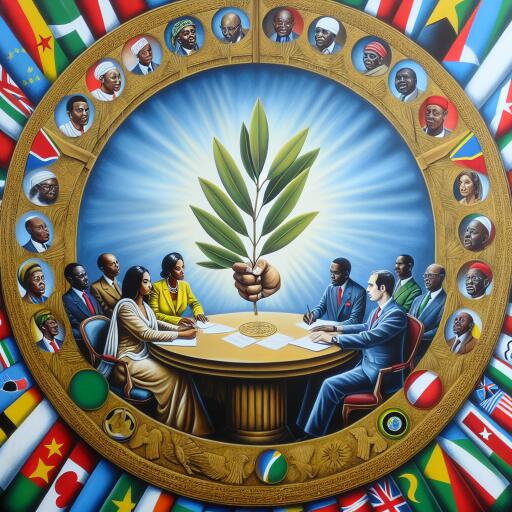
Reconciling ECOWAS after the sanction regime
The imposition of sanctions by the Economic Community of West African States (ECOWAS) on Niger, and by extension on Mali and Burkina Faso, has exposed the vulnerabilities and interconnected challenges facing the region. The decision, intended to address political instabilities, instead showcased the deep societal and economic interdependencies that bind these nations, highlighting the profound impact of such measures on the everyday lives of people across national borders.
In response to political upheavals within the Republic of Niger in July 2023, ECOWAS enacted a series of sanctions against the nation, attempting to push back against the overthrow of its democratically elected leadership. Spearheaded by Nigeria, which then held the chairmanship of ECOWAS, these sanctions included the closing of borders and cutting off utility services, signaling a stern stance against the military junta that took power. These measures, while aimed at reinforcing democracy, led to significant collateral damage among the nations’ citizens, disrupting long-standing economic and social relations.
Historically, the peoples of Niger and Nigeria, among others facing sanctions, have shared more than just geographic proximity. Cultural, ethnic, and economic ties have flourished over time, making the sanctions felt deeply by individuals on both sides of national boundaries. Livelihoods were threatened as cross-border trade – a lifeline for many communities – came to a grinding halt, exacerbating an already difficult situation with rises in prices for essential goods and services. The social fabric of these populations, deeply interwoven across borders, faced unprecedented strain.
Moreover, the repercussions of the sanctions extended beyond immediate economic hardships, affecting long-standing bilateral relations. The collaborative efforts between Nigeria and Niger, especially in combating terror and maintaining regional security, were jeopardized, raising concerns about the overall stability of the Sahel region. Efforts to bypass the imposed restrictions, like smuggling goods across borders, became rampant, reflecting the desperation of the people and, paradoxically, undermining the sanctions’ objectives.
The critique was not absent from within. Some leaders and community figures within the affected areas urged a reconsideration of the approach, arguing that the mutual dependencies between these countries made the sanctions counterproductive. This sentiment eventually contributed to a shift in the regional body’s stance.
The decision to lift the sanctions marked a turning point, greeted with broad approval as a step towards restoring economic and social stability. This move underscored the imperative of diplomatic engagement over punitive measures, with emphasis on the collective wellbeing of the regional populace. It also highlighted the essential role of figures like General Yakubu Gowon, whose intervention was pivotal in steering the discourse towards reconciliation and unity.
The aftermath of the sanctions regime has presented ECOWAS with a clear mandate: to foster a more cohesive and effective approach to resolving regional conflicts. This episode has laid bare the limitations of sanctions as a tool for promoting democracy and stability, suggesting that alternatives, rooted in dialogue and mutual understanding, may hold greater promise. As ECOWAS reflects on these lessons, the path forward will undoubtedly involve efforts to re-integrate the dissenting nations back into the fold, reminding all members of the shared destiny that binds the region together.
In the wake of these developments, the lifting of sanctions has not only illuminated the interdependencies characterizing the region but also offered a moment for ECOWAS to reassess its strategies in addressing governance challenges. The experience calls for a renewed commitment to the principles of cooperation, understanding, and mutual respect, ensuring that the collective pursuit of stability and prosperity remains the cornerstone of the West African community.





Leave a Reply